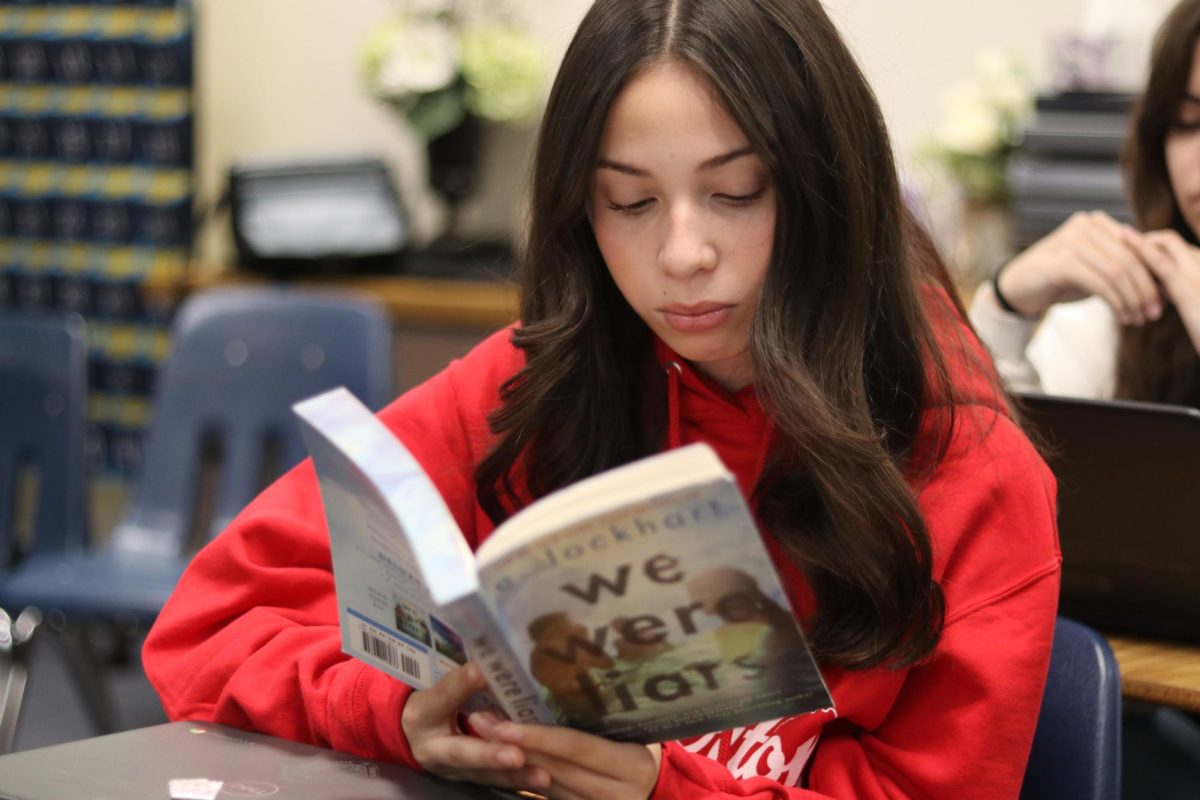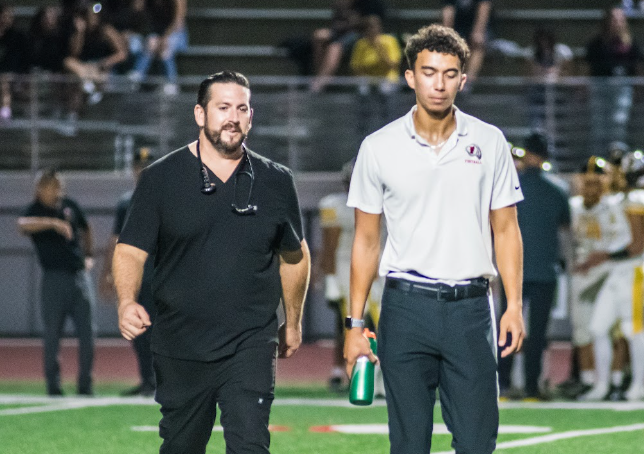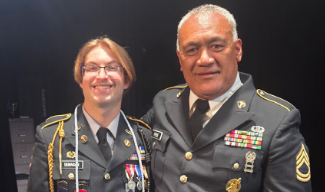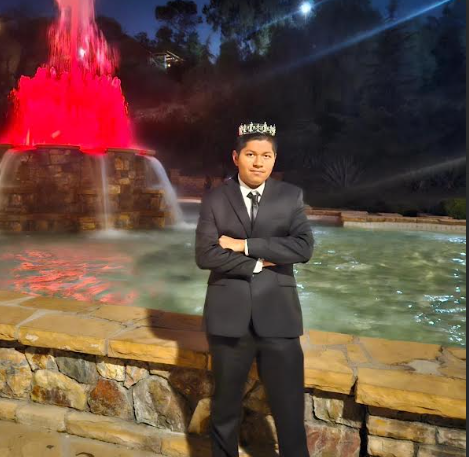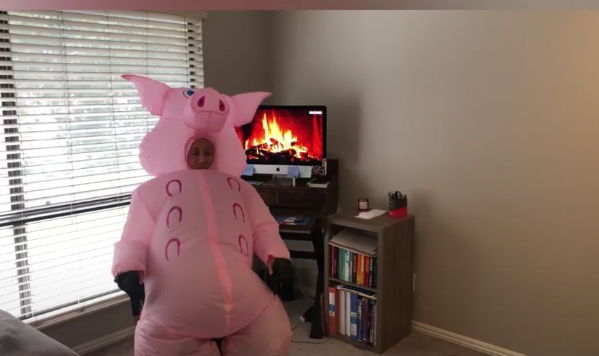
According to pediatrician Mercie DiGangi, isolation under COVID lockdowns has taken its toll on the psychological health of students. She especially sympathizes with students who haven’t been able to see their friends.
“It’s a time in your life when sometimes friendships truly outweigh your family relationships. Parents always complain about it but it’s normal for teenagers to want to spend more time with their friends than with their family,” said DiGangi, who works at Kaiser Permanente in Bellflower.
But some students are struggling to connect with peers.
“I think most kids are keeping in touch through social media and video games but obviously it’s not the same,” DiGangi said. “They’re home with their parents so there’s less privacy to talk with your friends about things that you might have talked about before without your parents listening.”
On the other extreme, teens can become emotionally fatigued by trying to be a good friend to someone with mental health struggles.
“I’ve definitely had kids in the clinic who are so worried about their depressed friend who’s having problems that the kid I’m talking to starts to get depressed as well because they absorb the feelings of their friend,” she said. “I love having close friends and being supportive and wanting to help but I always say you have to draw a line in the sand of when it’s time to get grown ups involved. You can talk to your own parents and ask for help, or it could be a teacher who knows both of you. If you’re starting to feel affected by it then it’s time to talk to an adult.”
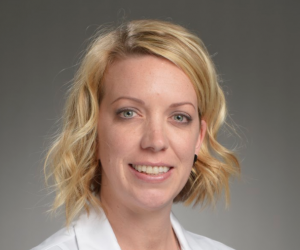
Although all students are experiencing loss, DiGangi says that freshmen and seniors have struggled the most.
“Freshmen because it’s a huge change going from middle school to high school,” she said. “But also with seniors it’s super sad. Your senior year is supposed to be party time and fun and it’s the last year you’re gonna see some of your friends.”
It’s important, she says, not to negate teens’ feelings.
“I don’t say things like ‘oh you’ll be fine’ or ‘you won’t even remember this’ and ‘you know life will get better and you’ll have more important things happen later.’ I actually don’t try to make them feel better. I know that sounds crazy, but I try to just empathize. I say ‘yeah, this sucks you’re totally right, this is really crappy and it’s a bummer’ and I tell them as you get older you’ll have something to commiserate about later. ‘Remember when we were seniors and we didn’t even get our senior year?’ I try to build a community with that,” DiGangi said. “I don’t think it’s fair to take away their feelings about it because it does suck. I try to normalize how they’re feeling, that it’s okay to feel sad about it and that all your friends are in the same boat.”
DiGangi says that checking in on a teen’s mental health is part of a routine medical exam. Doctors ask young patients a few questions when parents are not in the exam room.
“We ask about their home life and who they live with, their education, how school’s going,” she said. “Then we ask about all the other really private stuff like alcohol, drugs, sex. Then the last thing is about mental health.”
DiGangi remembers what her patients were like before the pandemic shut down schools.
“We usually asked about depression and if they feel suicidal or if they want to hurt themselves. Before COVID, I got all the normal teenage stuff. We definitely had teenagers that were feeling down and depressed and sad, but that was the standard.”
Now DiGangi is worried about the upward trend in mental health issues in teens and young adults. The CDC reports that 6% of youth age 12-17 have been diagnosed with depression, and 10% have been diagnosed with anxiety. These numbers have only increased in recent months. Loneliness, uncertainty, and a loss of routine have all contributed to the sharp and sudden increase of these illnesses.
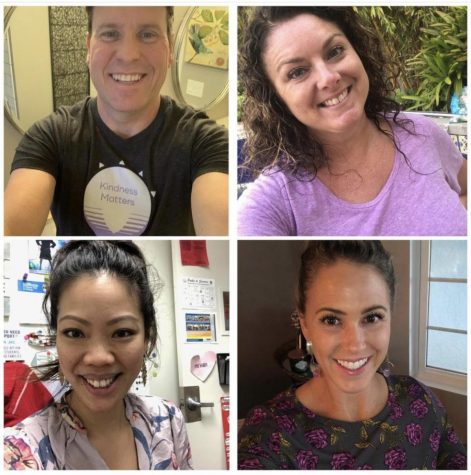
“I joke with my patients now—I mean, dark humor—but I say that pretty much every teenager I see now I send to counseling,” DiGangi said. “95% of them are feeling down and sad and isolated.”
DiGangi recommends students seek counseling. If students are suicidal they should seek medical attention, but for most students they can start by reaching out to their school counselor.
Students can contact their FUHS counselors through email or text.
Mr. McIntosh (714) 626-3849, (714) 489-5652 Cell/Text, [email protected]
Mrs. Defries (714) 626-3841 Office, (714) 489-5654 Cell/Text, [email protected]
Mrs. Kim (714) 626-3845, (714) 494-6358 Cell/Text, [email protected]
Mrs. McCarthy (714) 626-3851, (714) 489-5714, [email protected]
To cope with everyday stress, DiGangi recommends apps for mindfulness and mediation.
“Sometimes I have to sell it to kids a little bit but it is nice to take a break away from school, away from your family, have a moment to yourself to just breathe. Even five minutes a day can make a difference,” she said.
This mental health advice has been championed by FUHS counselor Erin Defries who, with the help of ASB and teacher volunteers, has created a series called Brain Breaks.
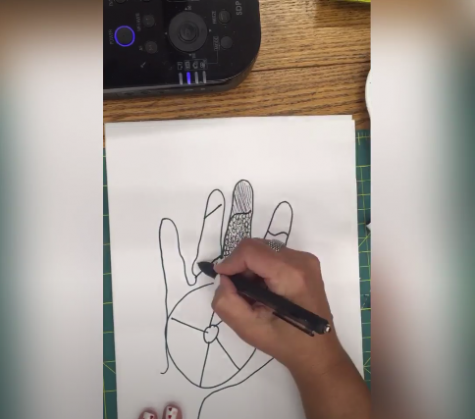
Each Wednesday for the last six weeks, Defries has posted a new video.
Simple therapies, like breathing, walking, doodling, laughing, and even doing nothing, can help control anxiety and depression.
This week, Defries has asked students for feedback about the Brain Break series. Students can complete the feedback survey here.
DiGangi recommends Calm and Mind Yeti.
“There are dozens and dozens of videos and they’re all three to five minutes. I definitely recommend that you take a minute and breathe, honestly it sounds funny to say that but it’s easy to forget,” she said.
DiGangi also recommends following the 20-20-20 Rule.
“Every 20 minutes look away from your computer or screens for 20 seconds and look at something 20 feet away. That rests your eyes, it rests your brain, and during the 20 seconds you can do some slow deep breaths and pull yourself back in. It’s great if you’re feeling frustrated with something in class or overwhelmed. It’s a really quick, short way to sort of center yourself again.”
For students who may know a friend who is struggling, DiGangi also has some tips.
“You can suggest to your friends the mindfulness apps or the 20-20-20 thing because sometimes if they hear it from a peer it’s better than hearing it from an adult.”
DiGangi says the most important thing is to remember you’re not alone.
“Most of the kids I talk to are feeling similar or feeling some level of sadness. You’re not alone and you’re not weird for feeling that way, it’s totally normal. I’m a huge proponent of being able to talk to someone and kind of just get your feelings out of your own brain and off your shoulders.”
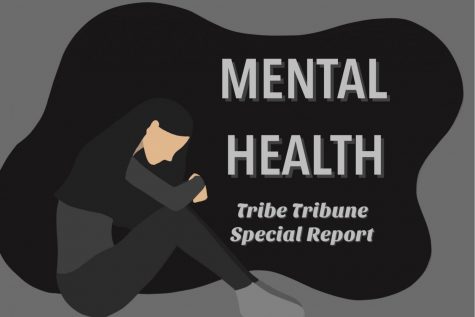
Related Stories:
‘Theater kid’ misses life before COVID
Vice principal sees students suffering, offers help
Let’s talk about mental health, for real

